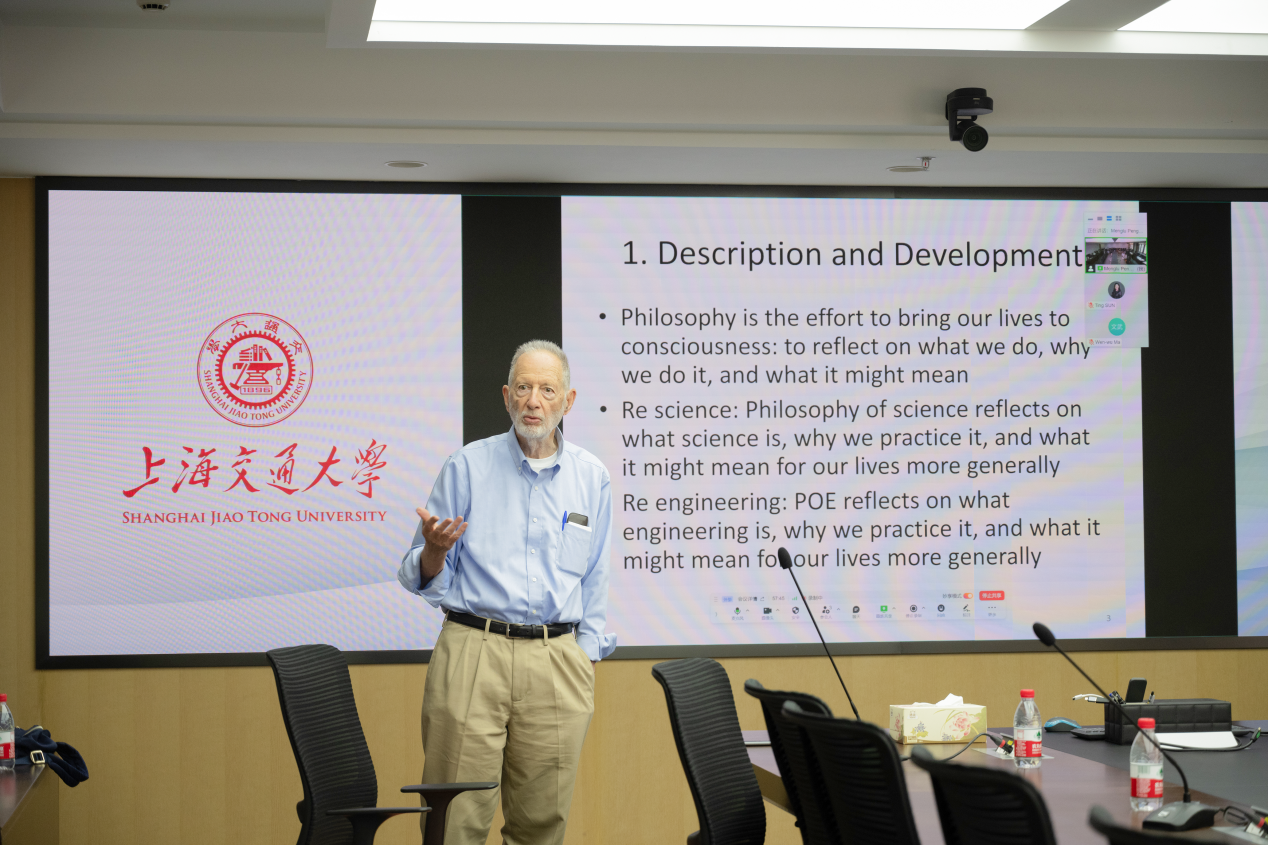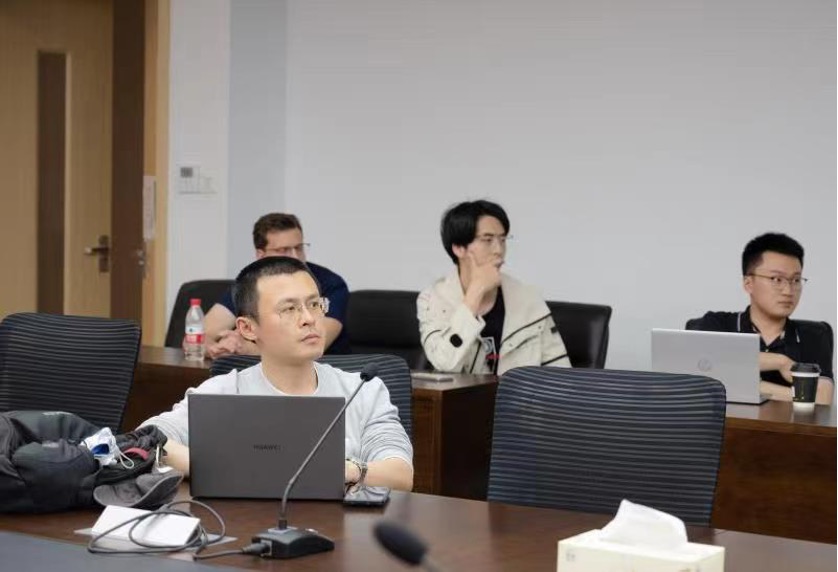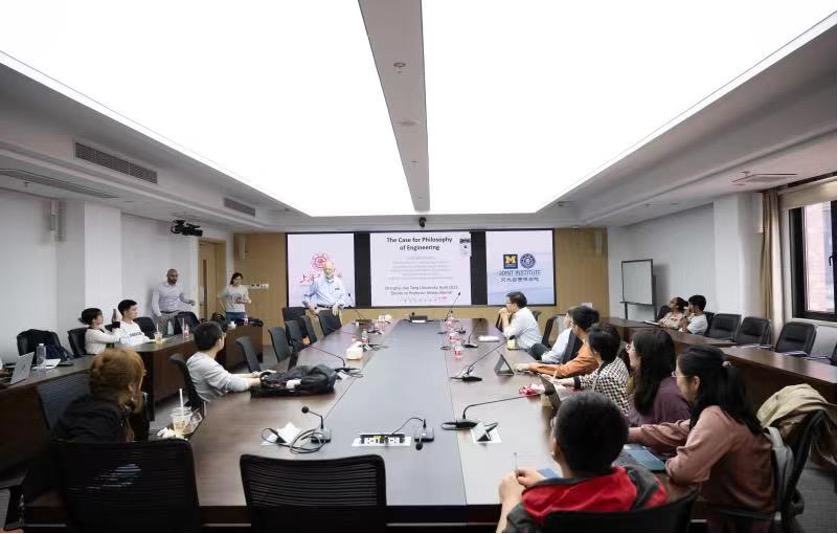On April 18, 2023, an intriguingly interdisciplinary talk took place, featuring Prof. Carl Mitcham, International Distinguished Professor of Philosophy of Technology at Renmin University of China and Professor Emeritus of Humanities, Arts, and Social Sciences at Colorado School of Mines. Prof. Mitcham captivated the audience with an insightful exploration of the Philosophy of Engineering (POE), guiding them on a journey through technology, engineering, and philosophy. Prof. Nicola Liberati of School of Humanities moderated the talk. Prof. Chien-Pin Chen, Dean of the UM-SJTU Joint Institute (JI) and Prof. David Hung, Associate Dean for Academic Affairs of JI attended the event.

Prof. Mitcham's talk was structured along two main threads: a brief account of the origins and development of POE, and an examination of its relevance and significance for society, including engineers, non-engineers, and students. The origins of POE can be traced back to two sources: one from the perspective of engineers, originating in China, and the other from collaborations between engineers and philosophers, as seen in Euro-America. Engineering as a discipline transcends the boundaries of traditional craftsmanship by applying scientific knowledge to create innovative solutions. With engineering now playing an indispensable role in modern society, the importance of POE has become increasingly evident for both engineers and non-engineers.

For engineers, POE offers practical benefits that can enhance their careers, as well as theoretical insights that can elevate their understanding concerned with the purpose of engineering. By engaging with POE, engineers can better appreciate the broader social and ethical ramifications of their work, fostering a deeper connection between their profession, their clients, and society as a whole. For non-engineers, POE serves as a gateway to understanding the far-reaching societal implications of engineering, encouraging reflection on the ethical and social consequences of emerging technologies and deepening awareness of the interplay between engineering and society. In the realm of education, the study of POE can equip students with a more comprehensive understanding of the broader implications of their chosen field, nurturing a more analytical and reflective approach to their work and laying the foundation for lifelong learning and sustainable professional growth.
Following his presentation, Prof. Mitcham participated in a round table discussion, addressing a range of thought-provoking questions posed by attending teachers and students. These inquiries touched on the implications of POE for both everyday life and educational practice, including ethical considerations in engineering, the distinctions between technology and engineering, and recommendations for incorporating philosophy into engineering research and education. Prof. Mitcham responded to each question with patience and enlightening insights.
Special thanks to Dr. Nicola Liberati (Assistant Professor from School of Humanities), Dr. Ting Sun (Associate Professor and Director of CLT from Joint Institute) and Ms. Menglu Peng (from Joint Institute) for orchestrating and supporting this event.

Reported by Suyun Xu
Proofread by Wenting Xing
Photographed by Tianyi Luo
Reviewed by Yihong Qiu

